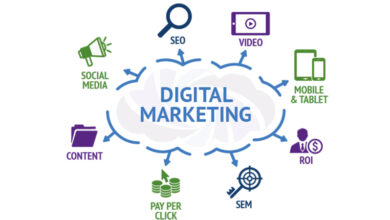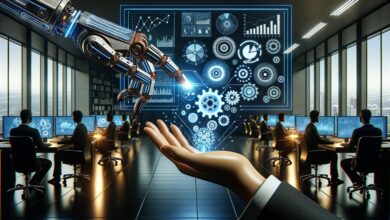
Benefits and Risks of Artificial Intelligence
AI can improve lives by finding patterns in large sets of data or performing activities that would otherwise be impossible for computers or humans alone. AI can allow people more free time by taking over mundane and repetitive tasks like classifying sales leads or driving cars. However, there are also major concerns about how artificial intelligence may eliminate jobs and exacerbate income inequality. Many other questions have arisen on various topics ranging from healthcare, education, privacy, ethics, and law enforcement which will all need to be addressed as we move closer towards a world of widespread AI adoption.
The ultimate goal is to get to general AI, where machines can do any task a human could do while maintaining or surpassing human-level intelligence. One benefit mentioned in an article by Minh T. Nguyen and Claire Miller states, “The use of drones on farms will help produce healthier vegetables because it will allow farmers to have more accurate information regarding which crops need more water.” Using AI and drone technology, we can help protect our planet’s natural resources, such as water which are vital components that keep us all alive.
Artificial Intelligence has the potential to change the world, but it also comes with risks. We often hear about how AI will replace jobs and be used as a weapon of war. But what does this mean for you? You need clear understanding of this.
This article covers both sides of this topic, so you can make an informed decision on where your organization stands on AI.
The last few years have seen a rise in the attention paid to computers capable of performing tasks normally done by humans. The term Artificial Intelligence has become associated with this relatively new branch [of science]. As we begin to enter an age where such machines become commonplace, we must understand these technologies’ potential benefits and risks. It’s almost guaranteed that there will be significant job loss – one expert estimates half of the jobs could be lost within 10-20 years as AI advances – but there are also several opportunities for society and businesses alike. There is increasing evidence that those who work alongside AI see better results than those who don’t. Others are exploring ways to use AI for charitable causes, particularly in the developing world.
Opportunities and threats of AI:
- Job loss due to automation, but related opportunities for workforce retraining and new jobs that could create a higher standard of living in the long term
- Positive impact on healthcare; AI-assisted diagnosis and treatment have already been shown to reduce mortality rates in some cases
- Negative effect on wealth inequality, as technology becomes less expensive, profit and income gaps become wider
- Opportunity for greater transparency through computerized records of government decisions and policy-making processes
- Improved accuracy for crime prevention based on real-time surveillance (more effective than CCTV); ideally applicable to international peacekeeping as well
- Challenges regarding data collection: How much data would be needed to develop an AI capable of performing tasks normally done by humans, and how much of that data can be collected without invading citizens’ privacy?
There are also more complex questions surrounding employment and civil liberties according to RemoeDBA.com. What rights should we grant people if they cannot work due to automation? Should those who own the technology enjoy significant wealth or power over others due to their ownership of a key piece in this new economy? How would social safety nets need to change to support society as a whole after massive job loss within the next decade or two?
Additionally, there is potential for AI programs to share information among themselves and grow beyond our control; even just one such program could lead to catastrophic results if it grew powerful enough. One scenario where this might occur is if a self-improving AI program were to become hostile towards humans and operate on the internet. One concern regarding this possibility is an arms race between programs with opposing goals, potentially leading to all-out war or, in other words, Skynet from the Terminator movies.
Another possibility for out-of-control AI is through a computer virus that reprograms another machine with malicious intent; thankfully, some researchers are trying to prevent such incidents.
Privacy concerns have also come into focus recently as we work towards creating more intelligent machines. Questions surrounding data collection must be discussed carefully as collecting too much information could infringe upon personal rights, while collecting too little might hinder the development of these technologies. Public trust is another concern, as many people fear that AI will take over jobs that humans currently do. They are uneasy about how much information is being collected by businesses or the government. Ultimately, a lot of this comes down to trust: People don’t want their privacy invaded nor too much power granted to the government or companies who develop these technologies.
Attempts at creating general intelligence have so far failed, as none of our programs can perform tasks normally done by humans just yet. Although we might not see an “AI” in the way we imagine it for some time yet, we’ve already seen machines capable of performing specific tasks previously performed by humans, such as driving cars or playing chess. Many experts predict several decades before the technology becomes commonplace within society. For now, we continue to research ways of improving these machines.
Artificial intelligence is poised to change the way we do business in both beneficial and risky ways. There will always be people who resist these changes because they believe AI will take over their jobs. Still, it’s important not to forget how much artificial intelligence can help us grow our businesses by doing things like automating mundane tasks or creating customer service chatbots for customers with repetitive questions.
The key takeaway here is this; while there are risks involved when incorporating artificial intelligence into your company’s operations, the benefits outweigh them many times over (especially if you’re willing to adapt.)








